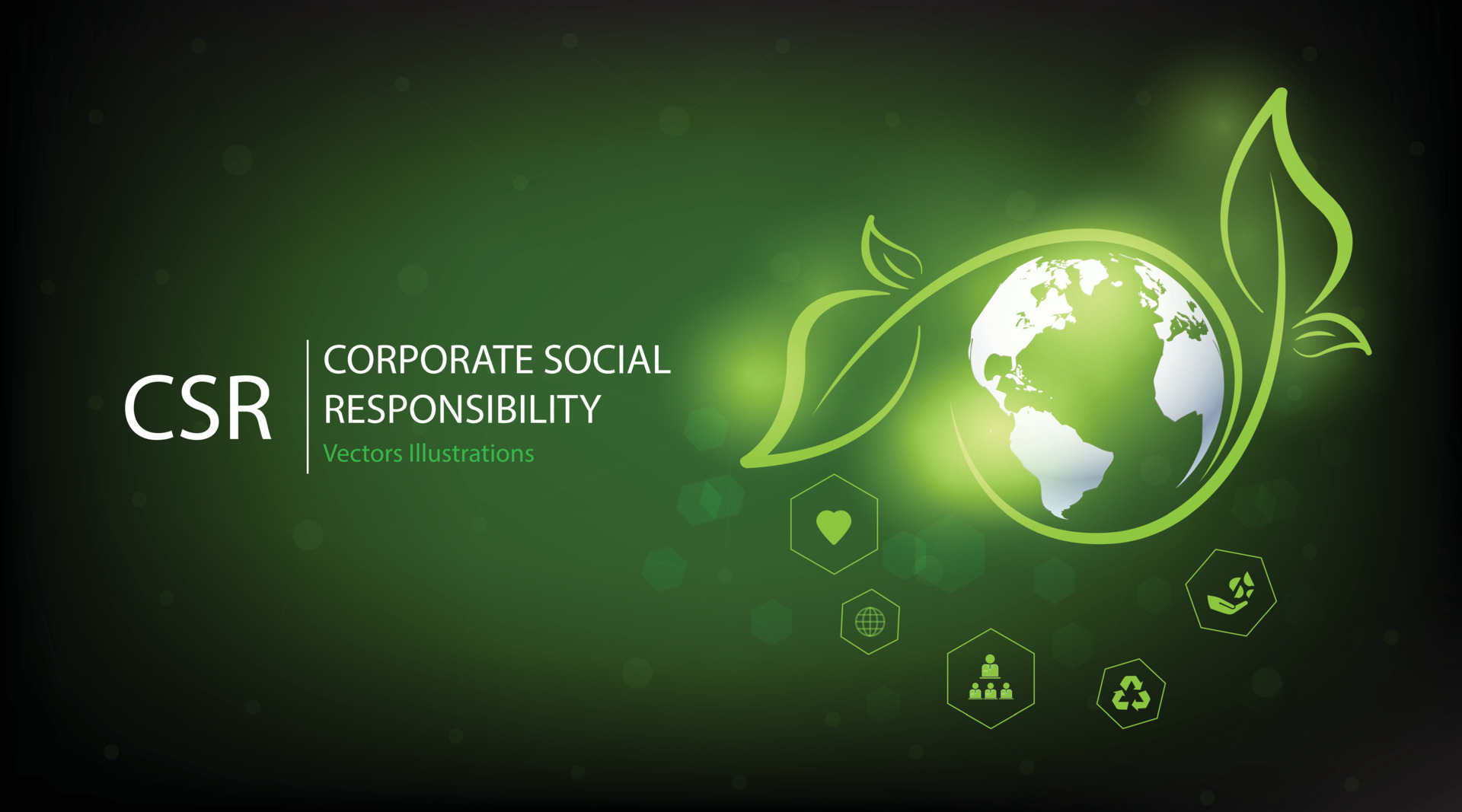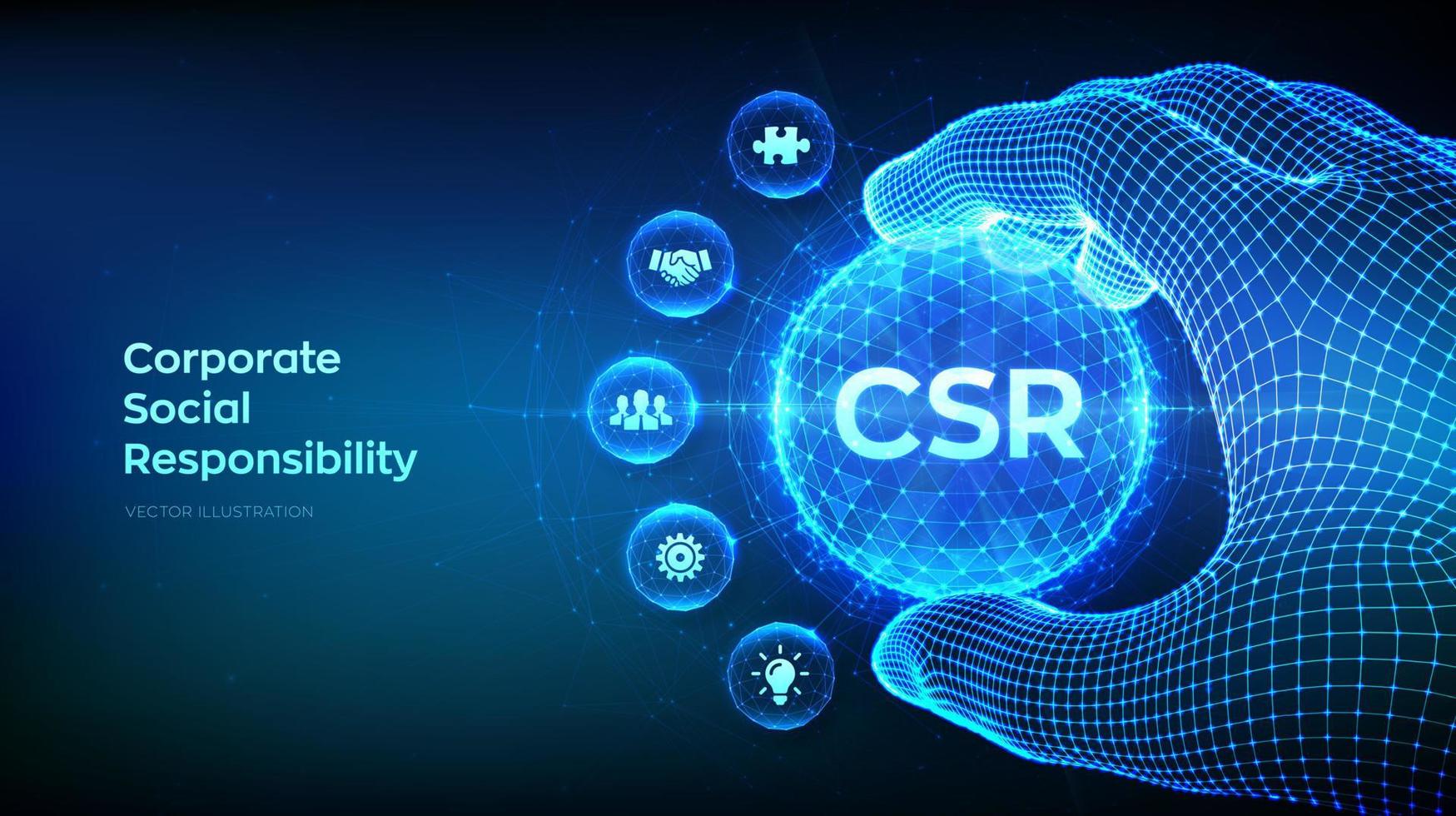
Corporate Social Responsibility (CSR): Giving Back to the Community – A Win-Win for Business and Society
In today’s world, businesses are no longer just judged by their profits. Customers, employees, and investors are increasingly looking at how companies behave – specifically, how they impact the world around them. This is where Corporate Social Responsibility (CSR) comes into play. It’s about businesses taking responsibility for their actions and making a positive difference, especially by giving back to the community.
This comprehensive guide will break down what CSR means, why it’s so important, and how companies put it into practice to benefit both society and their own bottom line.
What is Corporate Social Responsibility (CSR)? A Simple Explanation
At its core, Corporate Social Responsibility (CSR) refers to a business’s commitment to operate ethically and contribute to economic development while improving the quality of life for its workforce, their families, and the local community and society at large.
Think of it this way: a company isn’t just a machine for making money. It’s a part of society, made up of people, using resources, and impacting the environment. CSR is the idea that companies have a responsibility to act in a way that benefits everyone, not just their shareholders.
While CSR covers many areas, including environmental protection and fair labor practices, one of its most visible and impactful aspects is "giving back to the community." This involves companies actively working to improve the lives of people in the areas where they operate or serve.
Why Do Companies "Give Back"? The Benefits of CSR
You might wonder, "Why would a company spend money and resources on something that doesn’t directly sell more products?" The answer is simple: CSR, especially community giving, offers a wealth of benefits that go far beyond just looking good. It’s a strategic investment that pays off in many ways.
1. Enhanced Brand Image and Reputation
- Positive Perception: When a company genuinely cares and helps the community, people notice. This builds trust and respect.
- Differentiation: In a crowded marketplace, CSR can make a company stand out from competitors who aren’t as socially engaged.
- Crisis Management: A strong reputation built on good deeds can help a company weather negative publicity or unforeseen challenges.
2. Increased Customer Loyalty and Sales
- Conscious Consumers: More and more customers prefer to buy from companies they perceive as ethical and responsible. They want their money to support good causes.
- Emotional Connection: When customers see a company making a difference, they feel a stronger connection and are more likely to remain loyal.
- Word-of-Mouth: Satisfied and impressed customers become brand advocates, spreading positive messages about the company’s efforts.
3. Attracting and Retaining Top Talent
- Employer of Choice: Talented individuals, especially younger generations, are often drawn to companies that align with their values and offer opportunities to contribute to something bigger than just profit.
- Employee Morale and Engagement: When employees are proud of their company’s social impact, they are more motivated, engaged, and productive. Volunteering programs can also boost teamwork and camaraderie.
- Reduced Turnover: Happy and proud employees are less likely to look for jobs elsewhere, saving the company recruitment and training costs.
4. Positive Media Coverage and Public Relations
- Newsworthy Stories: Community initiatives and philanthropic efforts often make for compelling news stories, generating free and positive media attention.
- Credibility: Media outlets are more likely to cover a company that is actively contributing to society, enhancing its credibility.
5. Risk Management and Regulatory Compliance
- Reduced Scrutiny: Companies with strong CSR programs are often viewed more favorably by regulators and local authorities.
- Proactive Approach: Engaging with the community can help companies understand potential social issues early on, preventing future conflicts or legal problems.
6. Innovation and New Opportunities
- Problem-Solving: Addressing social issues can spark innovative ideas for products, services, or business models that also create social value.
- New Partnerships: Community engagement can lead to valuable partnerships with non-profits, government agencies, and other businesses.
7. Real Community Impact
- Addressing Needs: Most importantly, CSR initiatives genuinely help solve pressing community problems, improve lives, and create a better environment for everyone. This is the ultimate "win" in the win-win equation.
- Sustainable Development: By investing in education, health, and local infrastructure, companies contribute to the long-term well-being and stability of the communities they operate in.
How Do Companies "Give Back"? Common CSR Initiatives
Companies can give back to the community in many creative and impactful ways. The best initiatives usually align with the company’s values, resources, and the specific needs of the community.
Here are some common ways businesses practice CSR by giving back:
1. Financial Donations and Grants (Philanthropy)
- Direct Giving: Providing money directly to charities, non-profit organizations, schools, or community groups to support their programs and services.
- Matching Gifts: Companies often match donations made by their employees to eligible charities, effectively doubling the impact.
- Sponsorships: Sponsoring local events, sports teams, festivals, or educational programs.
2. Employee Volunteering Programs
- Paid Volunteer Hours: Allowing employees to take paid time off to volunteer for causes they care about. This encourages participation and shows company support.
- Team Volunteering Events: Organizing company-wide or team-based volunteer days for specific projects, like cleaning up parks, serving meals at shelters, or building homes.
- Skills-Based Volunteering: Employees use their professional skills (e.g., marketing, accounting, IT) to help non-profits who might not otherwise afford such expertise.
3. Product and Service Donations
- Donating Goods: Companies that produce physical goods (e.g., food, clothing, hygiene products, electronics) can donate surplus or specially produced items to those in need.
- Pro Bono Services: Businesses that offer services (e.g., legal, consulting, design, marketing) can provide these services free of charge to non-profits or underserved communities.
- Access to Technology/Resources: Providing communities with access to technology, internet, or other resources that they might lack.
4. Cause-Related Marketing
- "Purchase with a Purpose": A portion of sales from a specific product or service is donated to a chosen charity during a defined period. This encourages customers to buy while feeling good about their purchase.
- Awareness Campaigns: Using a company’s marketing power to raise awareness for social issues, even if no direct financial donation is involved.
5. Community Partnerships and Development
- Long-Term Relationships: Collaborating with local non-profits, government bodies, or community leaders to address specific, ongoing needs (e.g., job training programs, affordable housing initiatives).
- Infrastructure Investment: Contributing to local infrastructure projects like community centers, libraries, or playgrounds.
- Local Sourcing: Prioritizing sourcing goods and services from local businesses, which supports the local economy and creates jobs within the community.
6. Sustainable and Ethical Operations
- Environmental Stewardship: While often seen as a separate pillar of CSR, environmental efforts (like reducing waste, conserving energy, using sustainable materials) directly benefit the community by improving air and water quality and preserving natural resources.
- Ethical Supply Chains: Ensuring that all suppliers and partners uphold fair labor practices and environmental standards, impacting communities globally.
Getting Started with CSR: A Simple Guide for Businesses
If you’re a business looking to embark on your CSR journey, especially focusing on community giving, here’s a simple roadmap:
- Identify Your Values and Mission: What does your company stand for? What social issues genuinely resonate with your team and leadership? This helps ensure your CSR efforts are authentic and sustainable.
- Listen to the Community: Don’t assume you know what the community needs. Talk to local leaders, non-profits, and residents. What are the most pressing issues? Where can your company make the biggest difference?
- Choose Relevant Causes: Select causes that align with your business, your employees’ interests, and the community’s needs. A tech company might focus on digital literacy, while a food company might support food banks.
- Involve Your Employees: CSR is most successful when employees are engaged. Solicit their ideas, encourage participation in volunteer programs, and make them feel like a part of the positive impact.
- Start Small and Grow: You don’t need to launch a massive program overnight. Begin with a manageable initiative, learn from it, and expand your efforts over time.
- Measure Your Impact: How do you know if your efforts are working? Track your contributions (volunteer hours, donations, number of people helped). This helps you refine your strategy and demonstrate your impact.
- Communicate Your Efforts: Share your CSR stories with your customers, employees, and the public through your website, social media, press releases, and annual reports. Be transparent and authentic.
The Future of CSR: More Than Just "Good Deeds"
CSR is no longer just a nice-to-have; it’s becoming a fundamental part of how successful businesses operate. The trend is moving towards:
- Integration: CSR is not a separate department but woven into the company’s core business strategy and operations.
- Strategic Impact: Companies are focusing on initiatives that create measurable, long-term social value while also contributing to business goals.
- Transparency: Stakeholders demand more honesty and clear reporting on CSR efforts.
- Global Awareness: Companies recognize their responsibility extends beyond local communities to global supply chains and environmental impact.
Conclusion: A Powerful Force for Good
Corporate Social Responsibility (CSR), particularly the act of giving back to the community, represents a powerful and positive shift in the business world. It moves companies beyond a sole focus on profit to embrace their role as responsible citizens.
By investing in the well-being of their communities, businesses not only fulfill an ethical imperative but also unlock tangible benefits that lead to stronger brands, more loyal customers, happier employees, and ultimately, more sustainable success. In a world facing numerous challenges, companies that genuinely give back are proving that doing good is, indeed, good for business – creating a true win-win for everyone involved.



Post Comment